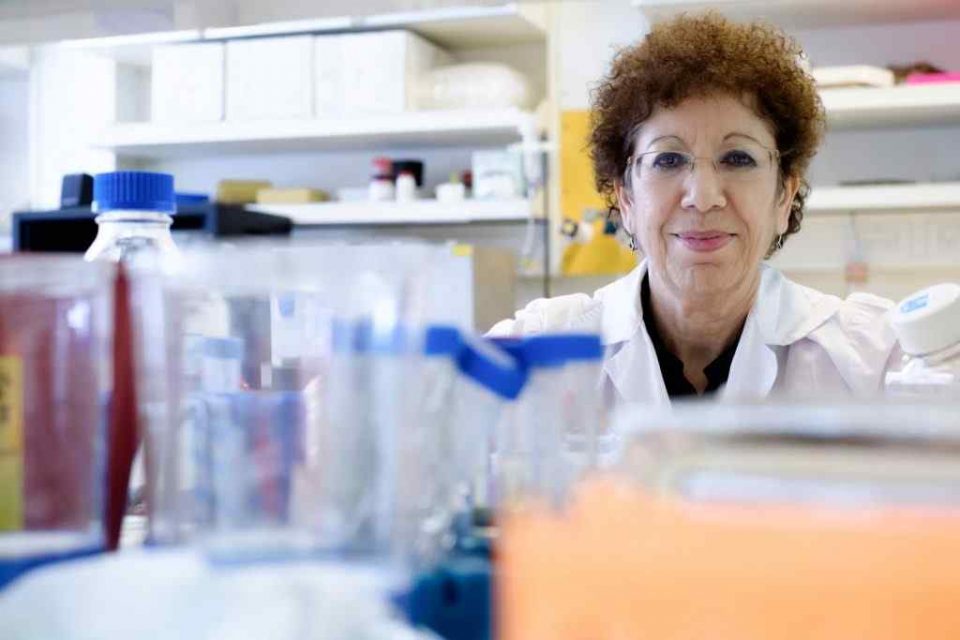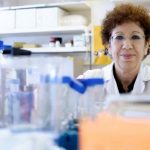Researchers at Israeli Ben-Gurion University have developed a novel cancer treatment with ability to reprogram cancer cells to pre-cancerous state

Ben-Gurion University of the Negev, is one of Israel’s leading research universities and among the world leaders in many fields. Today, BGN Technologies, the technology transfer company of Ben-Gurion University, and the NIBN announced that a research group led by Professor Varda Shoshan-Barmatz, the Department of Life Sciences, and the National Institute for Biotechnology at Ben-Gurion University (BGU) has developed a novel molecule for the treatment of cancer, which has shown not only inhibition of growth of cancer cells, but also the ability to reprogram the cancer cells back to normal-like cells. The novel treatment is based on preventing the expression of VDAC1, a protein that is highly over-expressed in many solid and non-solid tumors.
VDAC1 serves as the gate-keeper of the mitochondria, organelles that control cell metabolism, and is therefore crucial for supplying the high energy demands that characterize malignant cells. Studies by Prof. Shoshan-Barmatz show that silencing VDAC1 expression using the siRNA method, leads to inhibition of cancer cell growth, both in vitro and in mouse models of glioblastoma[1], lung cancer, and triple negative breast cancer. Importantly, treatment of cancer cells with VDAC1 specific siRNA induces metabolic rewiring of the cancer cells, reversing their oncogenic properties and diverting them towards normal-like differentiated cells. VDAC1 is a molecular target in glioblastoma, with its depletion leading to reprogramed metabolism and reversed oncogenic properties.
“Although still in early stages, we are excited with our results that demonstrate the potential of this novel molecule for cancer treatment,” said Prof. Shoshan-Barmatz. “Several of our findings are particularly noteworthy. First, VDAC1, which is overexpressed in most cancer cells compared to healthy cells, offers a potentially wide applicability for this treatment. Second, treatment with siRNA against VDAC1 inhibited growth of cancer cell but not of noncancerous cell, pointing to a potentially safe treatment. And most significantly, siRNA treatment of several cancer types in mouse models resulted in reprogramed cancer cells metabolism, leading to reduced tumor growth, induced disappearance of cancer stem cells and prompted cell differentiation. Thus, we discovered a code for reprograming cancer cells so that they lose their oncogenic features.”
Dr. Ora Horovitz, Senior Vice President of Business Development at BGN Technologies commented, “We are now seeking partners for the further development and advancement of this promising patented treatment towards the clinic in the hope that it will lead to a novel path for cancer treatment.”
BGN Technologies is the technology transfer company of Ben-Gurion University, Israel. BGN Technologies brings technological innovations from the lab to the market and fosters research collaborations and entrepreneurship among researchers and students. To date, BGN Technologies has established over 100 startup companies in the fields of biotech, hi-tech, and cleantech and has initiated leading technology hubs, incubators, and accelerators. Over the past decade, BGN Technologies has focused on creating long-term partnerships with multinational corporations, securing value and growth for Ben-Gurion University as well as the Negev region. For more information, visit the BGN Technologies website.
The NIBN, a unique research institute located within BGU, is the first self-organized, independent research entity established as a company under the auspices of a University in Israel.
The missions of the NIBN are to A) Conduct, encourage and fund cutting-edge, innovative and creative discovery-driven research, B) “Bridge the gap” between basic and applied biotechnological research aiming to facilitate preclinical development acceleration, C) Pursue the commercialization of the novel ideas, technologies and IP developed by NIBN researchers, and D) Create a crosstalk between the NIBN and the Bio Industry to maximize the potential of exchanging ideas and technologies, and research collaborations between the two entities. For more information, visit NIBN website.




